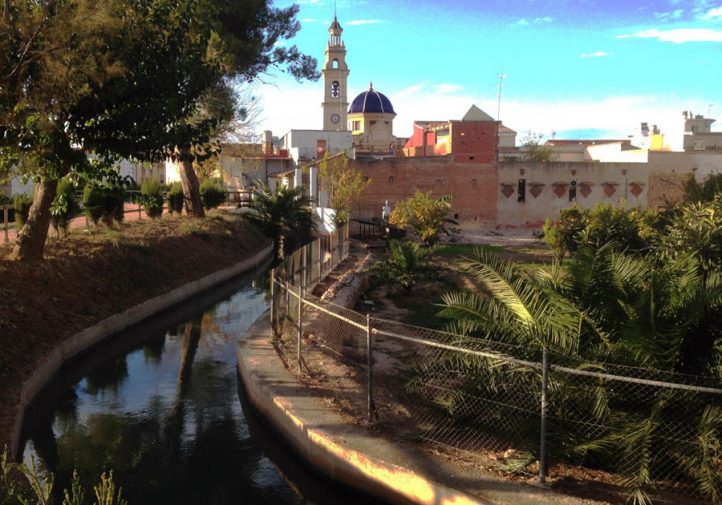Countries<Spain<Comunidad Valenciana<Benimuslem< Curso medio y bajo del Júcar
Located on the left bank of the river Júcar. The surface of the term is completely flat.
All crops are irrigated. It is irrigated with water from the Júcar through the Acequia Real del Júcar. The most important crops are citrus fruits, wheat, rice and vegetables.
The village is located on the left bank of the Júcar River. The parish is named after the Immaculate Conception. It celebrates its patron saint festivities to the Immaculate Conception, San Roque, San Antonio and Cristo de la Salud, the second decade of August.
It is a Muslim farm that was donated to Gorgeri de Calatayud in 1244. In 1459 it passed into the hands of Luis de Castellví, whose son, Pedro, was granted the title of baron in 1473. In 1609 it was depopulated as a result of the expulsion of the Moors. In 1615 it passed to the Pertussa family and in 1620 it was linked as a barony by the Baron of Benidoleig. Subsequently it has belonged to the Escals, Falcó and Rodríguez de la Encina families. According to Cavanilles, in 1795 it produced rice, silk, wheat and corn. It had a wharf on the Júcar River, of which the street with this name still remains (Calle del Embarcadero). River navigation was discontinued with the development of other means of communication in the 19th century and, above all, in the 20th century.
Situado en la ribera izquierda del río Júcar. La superficie del término es completamente llana.
Todos los cultivos se dan en régimen de regadío. Se riega con aguas del Júcar a través de la Acequia Real del Júcar. Los cultivos más importantes son los cítricos, trigo, arroz y hortalizas.
El pueblo está situado en la margen izquierda del río Júcar. La parroquia tiene por titular la Inmaculada Concepción. Celebra sus fiestas patronales a la Purísima Concepción, San Roque, San Antonio y Cristo de la Salud, la segunda decena de agosto.
Alquería musulmana que fue donada a Gorgeri de Calatayud en 1244. En 1459 pasó a manos de Luis de Castellví, al hijo del cual, Pedro, se le concedió en 1473 el título de barón. En 1609 quedó despoblada como consecuencia de la expulsión de los moriscos. En 1615 pasó a los Pertussa y es vinculada como baronia, en 1620, por el barón de Benidoleig. Posteriormente ha pertenecido a los Escals, Falcó y a los Rodríguez de la Encina. Según Cavanilles, en 1795 producía arroz, seda, trigo y maíz. Tenía un embarcadero sobre el río Júcar, del que aún queda la calle con este nombre (Calle del Embarcadero). La navegación fluvial se descontinuó con el desarrollo de otras vía s de comunicación en los siglos XIX y, sobre todo, en el siglo XX.
